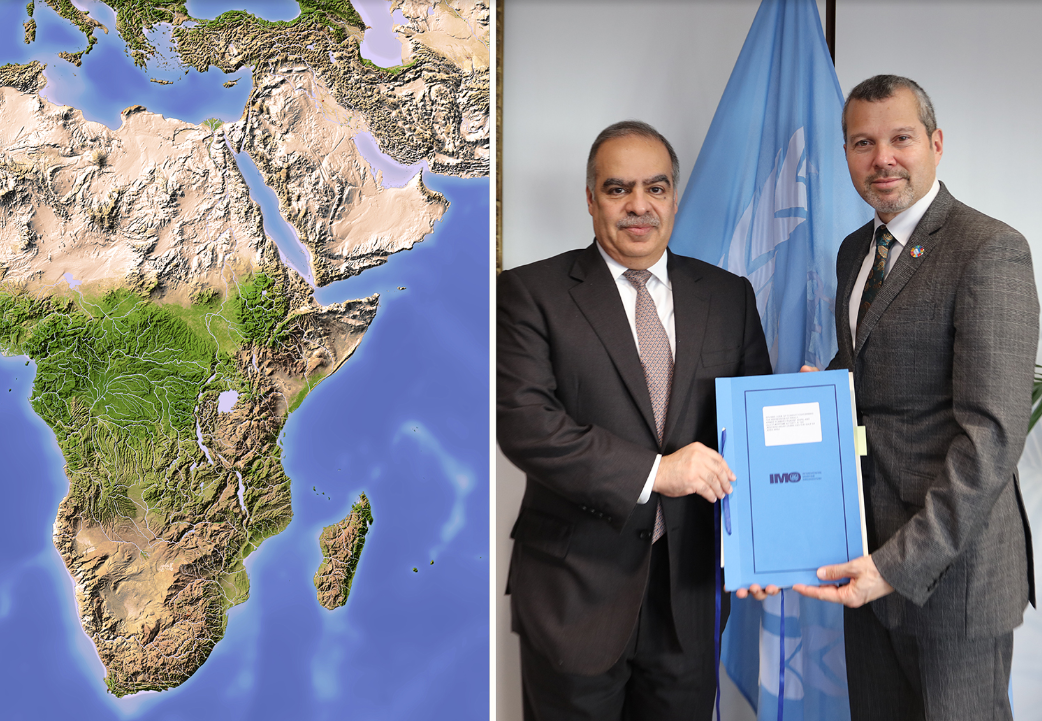
The Kingdom of Bahrain has officially become a signatory to the Jeddah Amendment to the Djibouti Code of Conduct (DCoC-JA). This marks a collaborative effort among 18 nations to combat piracy, armed robbery against ships, and various illicit maritime activities in the Western Indian Ocean and the Gulf of Aden.
The Ambassador of Bahrain to the United Kingdom, H.E. Mr. Shaikh Fawaz Bin Mohammed Al Khalifa, recently deposited the instrument with IMO Secretary-General Arsenio Dominguez at IMO Headquarters in London on 6 March, solidifying the commitment to bolstering maritime security in the region.
The DCoC-JA aims to develop a shared regional maritime security strategy, foster a robust information-sharing network, and enhance capacity-building programs on a wide range of thematic areas. This collaborative effort spans from addressing human trafficking to fortifying port and ship security. The International Maritime Organization (IMO) plays a crucial role in supporting the implementation of the DCoC-JA, alongside contributions from donor States.
Key to the success of this initiative is the regular communication and cooperation among Signatory States. An Extraordinary Session convened in December 2023 in response to the escalating attacks against international shipping in the Red Sea area. Subsequently, the DCoC-JA States crafted an eight-point action plan to further strengthen capacity in the region, effectively addressing emerging maritime security threats.
The Jeddah Amendment builds upon the Djibouti Code of Conduct (DCoC), initially adopted in 2009 to combat piracy and armed robbery against ships. In 2017, the DCoC underwent significant expansion with the introduction of the Jeddah Amendment (DCoC-JA), encompassing measures to suppress a broader range of illicit activities.
The scope of the Jeddah Amendment extends to combating illegal, unreported and unregulated (IUU) fishing, arms trafficking, narcotics trafficking, illegal trade in wildlife, crude oil theft, human trafficking and smuggling, and illegal dumping of toxic waste. Signatory States have embraced the IMO’s “whole of government” approach to maritime security, establishing national maritime security committees, developing risk registers, and formulating strategies with support from the IMO.
Among the 20 Signatory States to the original DCoC, 17 have embraced the expanded DCoC-JA. These include Comoros, Djibouti, Ethiopia, Jordan, Kenya, Madagascar, Maldives, Mauritius, Mozambique, Oman, Saudi Arabia, Seychelles, Somalia, South Africa, United Arab Emirates, United Republic of Tanzania, and Yemen. Notably, Bahrain stands out as the first Member State to join beyond the original DCoC signatories, reinforcing its commitment to regional maritime security.
Source:IMO

